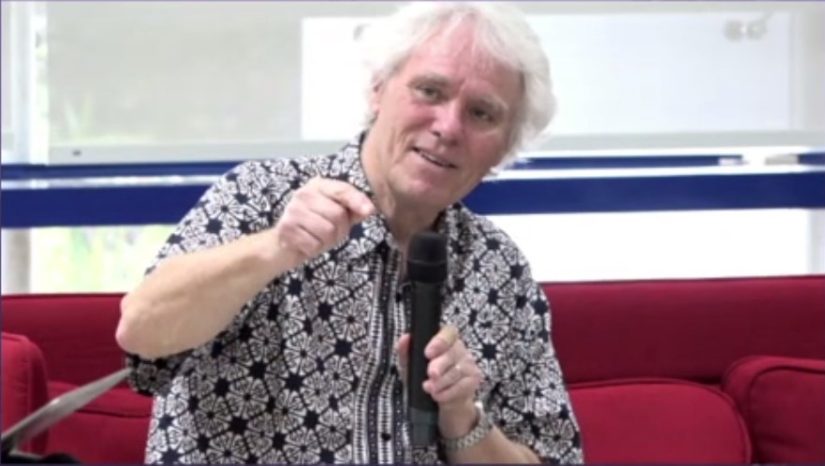
Yogyakarta, April 8th 2022─The Faculty of Social and Political Sciences (Fisipol) of Universitas Gadjah Mada (UGM), held a discussion and review of the book “In Search of New Social Democracy”. Professor Olle Tornquist from the University of Oslo, the author of the book, discussed his work with two speakers, namely Amalinda Savirani (lecturer of the Department of Politics and Government/DPP or PolGov) and Muhammad Najib Azea (lecturer of the Department of Sociology or SOREC), as well as several audiences who were the Fisipol UGM doctoral student at the Digital Library of Fisipol UGM.
In writing the book “In Search of New Social Democracy”, Prof. Tornquist developed a framework consisting of a Social Democracy foundation, a Social Democracy strategy, and three generations of Social Democracy. The three sides of the framework serve as a lens for viewing and comparing cases in Southern countries (India, Indonesia, Philippines, South Africa, and Brazil) and Northern countries (Europe, especially Sweden).
“As a society, we need an equal system, not only for the sake of class, but also for children, women, farmers, and so on,” Prof. Tornquist explained.
Prof. Tornquist describes the four cornerstones of Social Democracy. First is broad interest-based collectivity. Second, democratic relations between the state and equal citizens. Third, reform of rights and social welfare. Lastly, the agreement on social growth.
This Professor of Political Science and Development Research at the University of Oslo also explained the five steps or strategies of Social Democracy. First, dismantle capitalism from within the government. Second, tame capitalism with rules and regulations. Third, against capitalism from outside, such as trade unions, action groups, and so on. Fourth, avoiding global markets by building good cooperatives or communities and trying to survive without dealing much with the outside market economy. Fifth, build a series of transformative reforms. He gave an example of state-feminism in Scandinavia which not only changed the condition of women, but also the society. “This change occurs in the wider economic and social sector,” he said.
Furthermore, Prof. Tornquist explained the three generations of Social Democracy consisting of the industrial revolution wave, the anti-fascist and anti-colonialism wave, and the third wave of democracy that emerged along with capitalist liberal globalization. In Indonesia, Social Democracy was defeated by Guided Democracy in the New Order era. Prof. Tornquist considered that at that time Indonesia had neglected a lot of attention, including civil rights, to support anti-imperial and anti-feudal leftist populism.
“I had failed to write this book,” Prof. Tornquist said. He said that at first the text of this book was too densely structured theoretically, so it was not easy for everyone to read. To compose a text that is easier for the general public to read, he did two things, namely by reformulating his research question as a mystery. Then, he imagines himself as a detective trying to solve the mystery.

“This book has rich material,” Amalinda said. However, this lecturer at the Department of Politics and Government at the Faculty of Social and Political Sciences of UGM, highlights the lack of positive aspects of the democracy movement in Indonesia, which has occurred in recent years, in this book. According to her, it is necessary to update data regarding the democratic movement in Indonesia, because young people and the technology used have changed. Meanwhile, Najib provided input regarding the possibility of a new framework to explain the transformation of Social Democracy that is taking place globally. On the other hand, Amalinda and Najib congratulated the publication of this book and appreciated Prof. Tornquist’s efforts. Tornquist has dedicated more than three decades to researching Social Democracy in three regions, including Indonesia.
The discussion was held offline with Arrizal Jaknanihan from the Institute of International Studies Fisipol UGM as moderator and also broadcast live on the Fisipol UGM YouTube channel.
